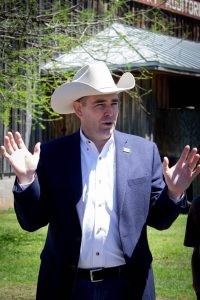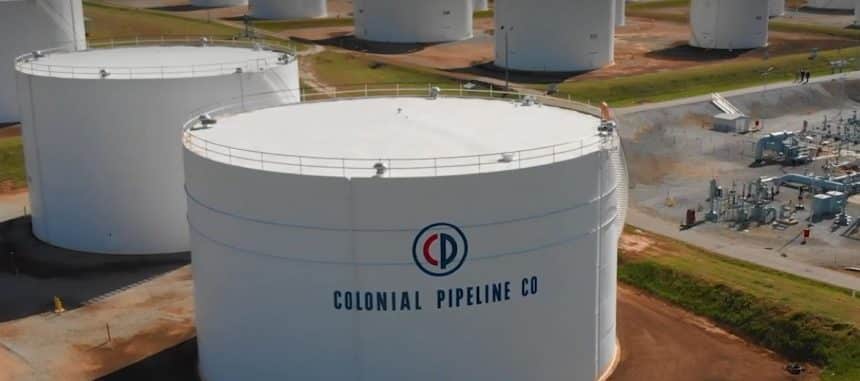The ransomware attack on Colonial Pipeline resulted in its shutdown last Friday and is unfortunately causing many people to result to “panic buying” fuel.
Colonial expects to restore operations by the end of the week.


Governor Tate Reeves said there are five additional resources that flow into Mississippi in terms of gasoline, including the major Chevron facility on the gulf coast. “It’s something that we should not panic about. We should just continue to go about our normal day and everything should be fine assuming it does get back online later this week,” said Reeves.
Reeves also stated, “In a normal week, less than 30% of Mississippi’s fuel comes from the Colonial Pipeline. The vast majority of our fuel (over 70%) comes from at least five other sources, both in and out of state, including the Pascagoula Refinery. Also, necessary state and federal action has already occurred to allow longer hours for fuel to be delivered by tanker.”
Here’s what Secretary of State Michael Watson had to say about the ordeal.
Commissioner of Agriculture and Commerce Andy Gipson is also encouraging the public to refrain from “panic buying” fuel. Gipson suggests, “the best things we can do are: 1) limit unnecessary travel; and 2) purchase fuel only as needed.”

“I want to encourage the public across the state to purchase the fuel they need, but not over buy or panic purchase fuel. Mississippi does not face a gas shortage due to the pipeline disruption, but panic buying could exhaust, and in some cases has already exhausted some local station supplies. The Department’s Regulatory Services Bureau is closely monitoring this situation,” said Commissioner Gipson.
Commissioner Gipson continued, “The East Coast and landlocked states without refineries may see disruptions. You’ll see it on the news, I’m sure. But the Colonial Pipeline supplies less than 30 percent of the fuel in Mississippi. Our river terminals at Vicksburg, Greenville and Aberdeen are continuing to receive an abundant supply of product – increased, even, because of the delay in shipping on the pipeline. Our land terminals are continuing to fill orders. The Plantation Pipeline is increasing supply and the Pascagoula Chevron Refinery is operating without disruption.”
The Plantation Pipeline, an additional pipeline running through the state, is working to accommodate added supply on its pipeline. The Chevron Pascagoula Refinery, one of the largest refining operations in the country located on the Mississippi Gulf Coast, is unaffected due to the outage of the Colonial Pipeline. The Chevron Pascagoula Refinery is continuing to supply its customer network along the U.S. East Coast and is managing fuel supply chain disruptions caused by the outage of the Colonial Pipeline.
Due to additional labor shortage pressure in the fuel transportation industry, the U.S. Department of Transportation has issued a waiver allowing for longer service hours by motor carriers and drivers providing direct assistance in affected states, including Mississippi.
“I recommend Mississippians limit travel as possible, but if traveling for work or pleasure this week to be mindful of their fuel needs. You should call ahead to the chamber of commerce or local tourism office at your destination to inquire about local fuel supplies. Unfortunately, gas prices have been on the rise, and we expect this will further contribute to price increases at the pump. However, we anticipate any local price increases felt by consumers will not be the result of lack of supply, but rather are related to additional shipping costs incurred with picking up product in markets outside of the routine contract area due to the disruption,” said Commissioner Gipson.
Commissioner Gipson concluded, “In summary, Mississippians should travel as necessary and purchase only the fuel they need. ‘Panic buying’ is counterproductive, and there is no need to panic.”
The latest update from Colonial Pipeline was posted to their website Monday night at 7:50. It reads as follows:
Colonial Pipeline is continuing to work in partnership with third-party cybersecurity experts, law enforcement, and other federal agencies to restore pipeline operations quickly and safely. While this situation remains fluid and continues to evolve, the Colonial operations team is executing a plan that involves an incremental process that will facilitate a return to service in a phased approach.
We can now report that Line 4, which runs from Greensboro, N.C., to Woodbine, Md., is operating under manual control for a limited period of time while existing inventory is available. As previously announced, while our main lines continue to be offline, some smaller lateral lines between terminals and delivery points are now operational as well. We continue to evaluate product inventory in storage tanks at our facilities and others along our system and are working with our shippers to move this product to terminals for local delivery.
Our primary focus remains the safe and efficient restoration of service to our pipeline system, while minimizing disruption to our customers and all those who rely on Colonial Pipeline. We will continue to provide updates as restoration efforts progress.







